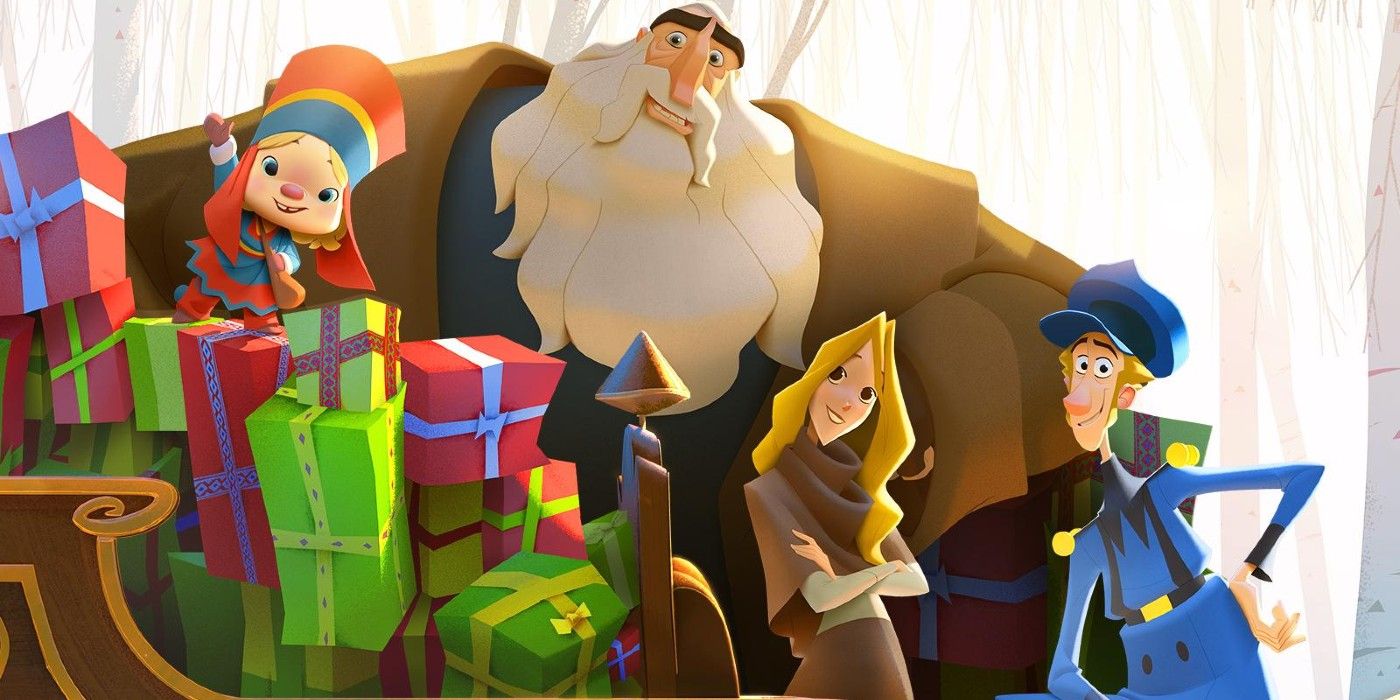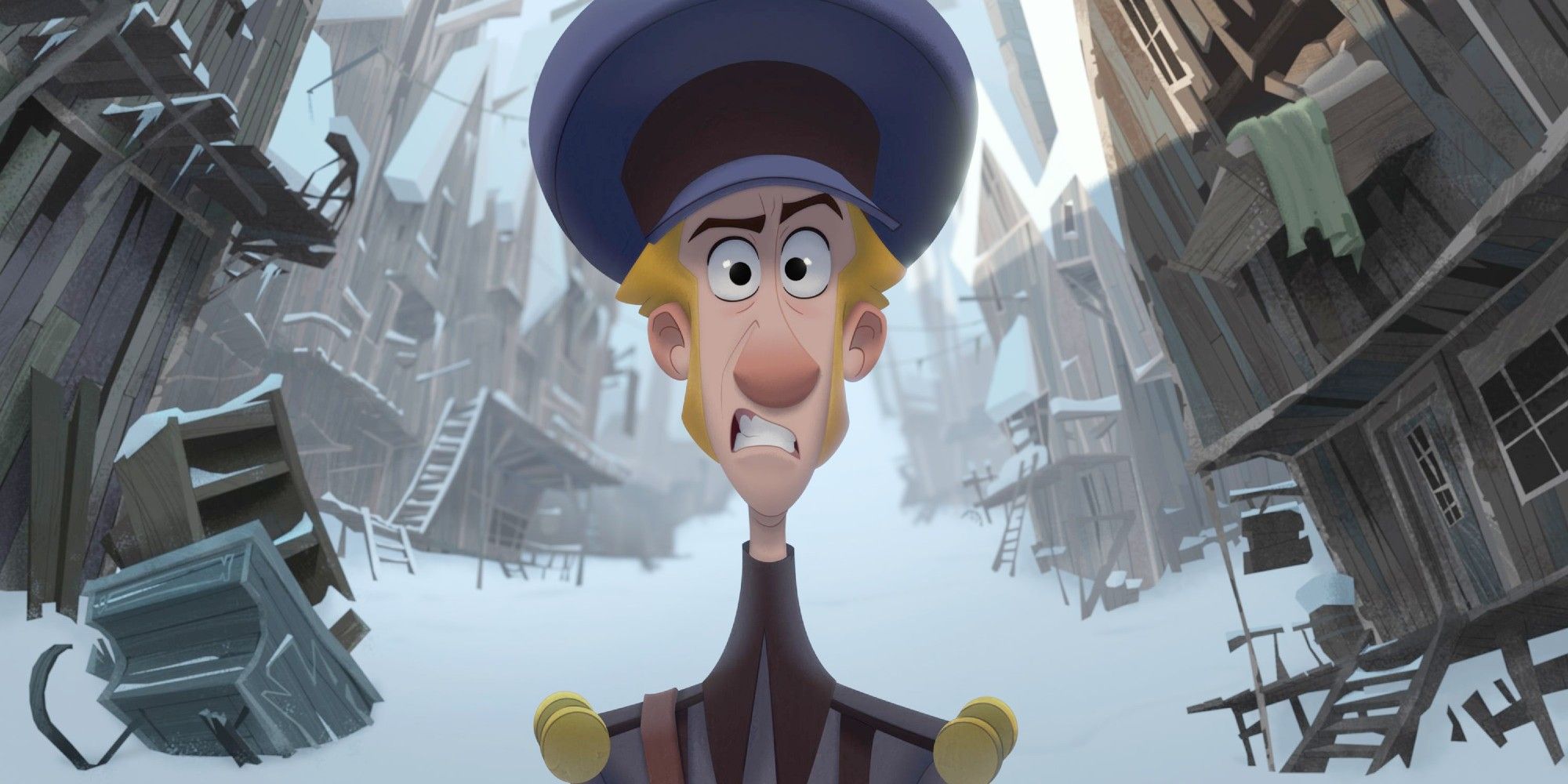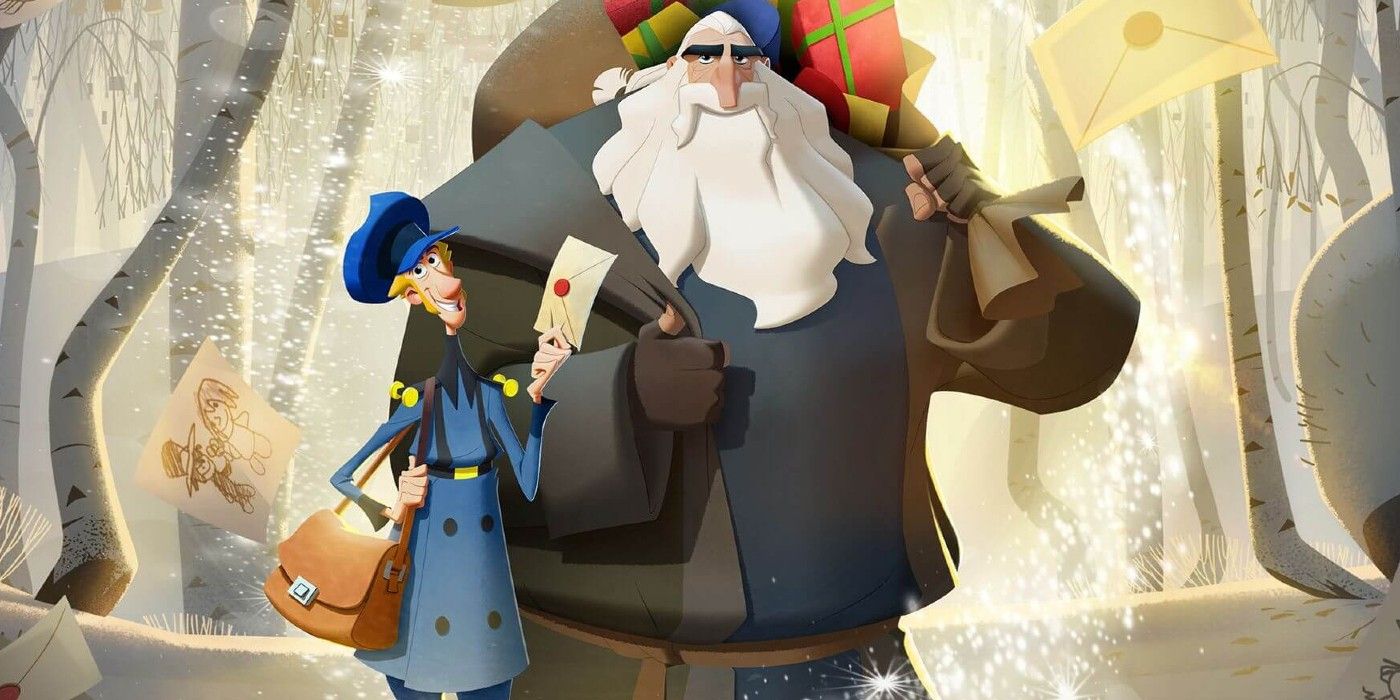Netflix made a splash in 2019 with its Oscar-nominated animated feature Klaus, a re-imagining of Santa Claus' origin story that marked the directorial debut for Disney Animation Renaissance artist and Despicable Me co-creator Sergio Pablos. The film certainly puts a novel twist on the story of Old St. Nick by suggesting the Santa Claus we know is, in essence, the ghost or spirit of a widowed woodsmen and toymaker named Klaus.
Set in the 19th century, Klaus revolves around Jesper Johansson (voiced by Jason Schwartzman), the son of a respected Royal Postmaster General who is exiled to the miserable little town of Smeerensburg by his father as punishment for his selfish behavior. There, he encounters the reclusive Klaus (J.K. Simmons) and discovers his home is full of handmade toys. Eventually the pair team up to deliver Klaus' toys to the kids of Smeerensburg, which not only gives rise to the myth of Santa Claus, but also brings an end to the longstanding feud between the town's Ellingboe and Krum clans.
Most of Klaus plays out as a whimsical yet grounded story about how the Santa Claus story came to be. However, there are hints of something magical early on. When Klaus officially meets Jesper for the first time, he sees wind blowing through the woods, producing unusual swirls of leaves and snow around him. Towards the end of the film, after having delivered toys to Smeerensburg and other towns for the past twelve years, Klaus sees those same swirls in the woods again and follows them before vanishing without a trace, presumably to be reunited in the afterlife with his beloved wife.
In the film's epilogue, Jesper recounts how Klaus was never seen by anyone in Smeerensburg after that, but that every Christmas Eve he gets to spend time with his old friend again. It's implied he means that literally, as Jesper is shown waiting up one Christmas Eve and hearing the sound of sleigh bells jingling from atop his home's roof. While a more predictable ending might have shown Jesper taking up the Santa mantle from Klaus, suggesting he would pass it on to someone else in time (kicking off a tradition), the movie heavily indicates it's Klaus' ghost or spirit who delivers presents every year.
"Undead Santa" jokes aside, Klaus' ending feels like a fitting capstone to the film's themes about the importance of generosity. Jesper initially helps Klaus deliver his toys for self-serving reasons, before he gradually becomes more selfless and sees the value of his career as a postman. His actions, in turn, inspire Klaus to bring joy to others with his toys, which he originally made for his late wife and the kids they never had. They also encourage Smeerensburg's other citizens -- like Alva (Rashida Jones), a teacher-turned-fishmonger who just wants to get out of the town -- to give freely to others and help make their world a better place.
It's worth pointing out the movie doesn't actually show Klaus' ghost or spirit onscreen, which leaves a little room for interpretation about who, exactly, Jesper hears on his rooftop in the final scene. Whether it's really a no-longer-living Klaus or not, the point is that his kindness in life ought to be carried on, as the now-married Jesper and Alva try to do. Christmas, in turn, provides Jesper with an annual reminder of how his time with Klaus changed him for the better, and possibly reunites the pair in more ways than one.
Directed by Sergio Pablos, Klaus features the voice talents of Jason Schwartzman, J. K. Simmons, Rashida Jones, Joan Cusack, Will Sasso, and Norm MacDonald. The animated film is streaming on Netflix.



